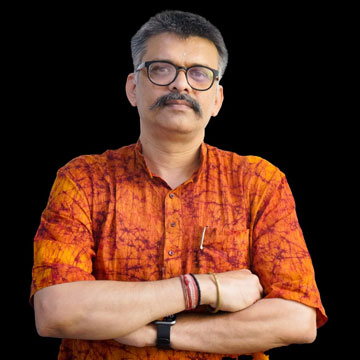“When will our unity-hankers understand that the real question at the root of this Moslem displeasure is not a word here or a song there! We would have sacrificed a dozen songs or a hundred words of our own free will if thereby we could really contribute to the unity and solidarity of Hindusthan. But we know the question is not so simple as that. It is the strife of different cultures and races and nations and these trifles are but the passing and outward symptoms of this malady deep seated in the Moslem mind. They want to brand the forehead of Hindudom and other non-Moslem sections in Hindusthan with the stamp of self-humiliation and Moslem domination and we Hindus are not going to tolerate it any longer not only in the interests of Hindudom alone but even in the interest of Indian nation as well.” – Swatantrya Veer Vinayak Damodar Savarkar, in his speech at the 19th session of AKHIL BHARATIYA HINDU MAHASABHA at Karnavati, (Ahmedabad), 1937
On November 18, 2023, the Uttar Pradesh Government imposed a state-wide ban on the “production, storing, distribution and sale of halal certified edible items”, and “with immediate effect”, the action of registering the cases followed. The four organisations having a monopoly over this extortion business in the name of halal compliance are mentioned in the First Information Report (FIR). They are Halal India Pvt Ltd of Chennai, Jamiat Ulama Hind Halal Trust of Delhi, Halal Counselling of India and Jamiat Ulama of Mumbai, Maharashtra. Predictably, there are adverse reactions of defiance by the radicals in the name of secularism. We need to get into the roots and ramifications of the halal certification business on the economy and society.
Halal is a typical Islamic concept used for designated products permissible for Muslims to consume as per the Sharia. It is used in contrast to haram, which means forbidden. Though Jamiat Ulama-i-Hind introduced this fad in 1919 on the backdrop of the Khilafat movement in Bharat, the food products did not require halal certification until 1974. During this period, ‘secularism’ became a political currency to woe radicals, resulting in the insertion of the term in the Constitution during the Emergency. Till 1993, the halal certification process was limited to the slaughtered meat products. With the liberalisation process, in the name of exports to Islamic countries, a series of categories, especially related to processed food products, were added to the certification process. Now, it is a multi-billion-dollar industry with the exclusive control of Muslims finding resistance across the world. World Halal Day is celebrated on November 01, and a global body called United World Halal Development (UNWHD) is working to promote halal compliance. Regular vegetables, dairy products and Ayurvedic medicines also come under halal compliance now. Usually justified in the name of hygiene and purity, the halal logic is extended to the extreme of halal tourism and halal dating sites, which is nothing but an attempt to impose and extrapolate Islamic norms to take control of the economy, which is against the spirit of a genuinely secular democratic country.
If halal is about purity and hygiene, there are standards agencies for all consumable products like the Food Safety and Standard Authority of India (FSSAI). Why do you need a monopoly of private players, run by a single community, to certify the products? As per the standardisation process, ingredients are mentioned on the packing of the product. Anyone, including Muslims, can verify whether it is acceptable to them or not. In March 2023, through the Quality Council of India, the Commerce Ministry introduced the Indian Conformity Assessment Scheme (i-CAS), under which certification bodies are expected to follow the procedure, especially for exporting the products. Still, the private and non-recognised agencies are providing the certification? Why is there an insistence on the parallel process? The main reason is that halal products whose ingredients and manufacturing must comply with the Quran’s dos and don’ts. For instance, in the case of meat, only a Muslim man can slaughter the animal while reading a specific Quranic verse known as Tasmiya or Shahada. Isn’t it discriminatory against non-Muslims, especially the Scheduled Castes from the Hindu community who are part of the meat supply business?
The halal certification does not come for free. Let’s go through the process specified by the four mentioned companies. It includes application, audit and then certification, all by the Muslims, if needed, with the support of Fatwa by a cleric. This entire process increases the cost of the product included as an indirect tax component. In many countries, it is known as the halal tax. This halal tax is an unjust extortion of money from non-believers of Islam while forcing Islamic norms on them.
Such supremacist imposition does nothing but promotes hostility in the name of religion and fosters communal monopoly in business activities. Such private entities can use this illegal and unaccounted money for radicalisation.
The attitude of putting religious norms above the law of the land is a dangerous trend that has persisted for decades with the hypocritical concept of secularism. Veer Savarkar had diagnosed this problem long back. The Uttar Pradesh Government’s decision to impose the halal ban has opened up a new opportunity to debate and decide over this undemocratic practice of economic Jihad.




















Comments